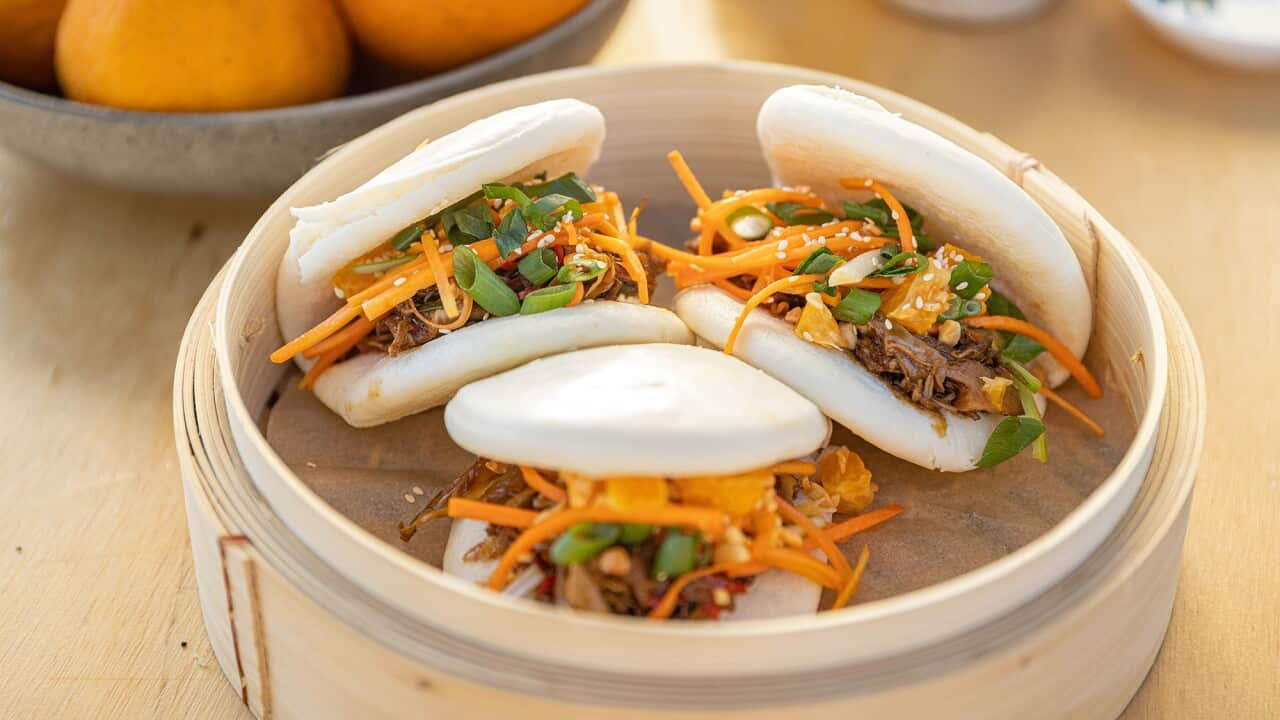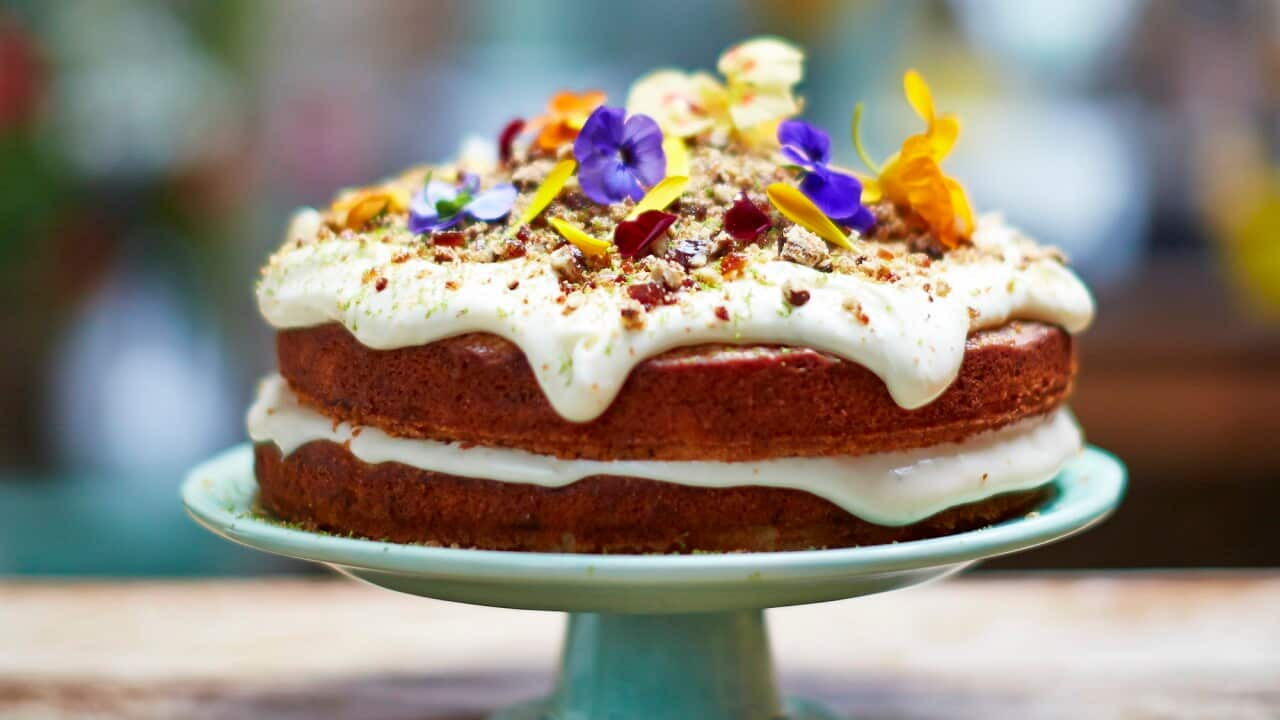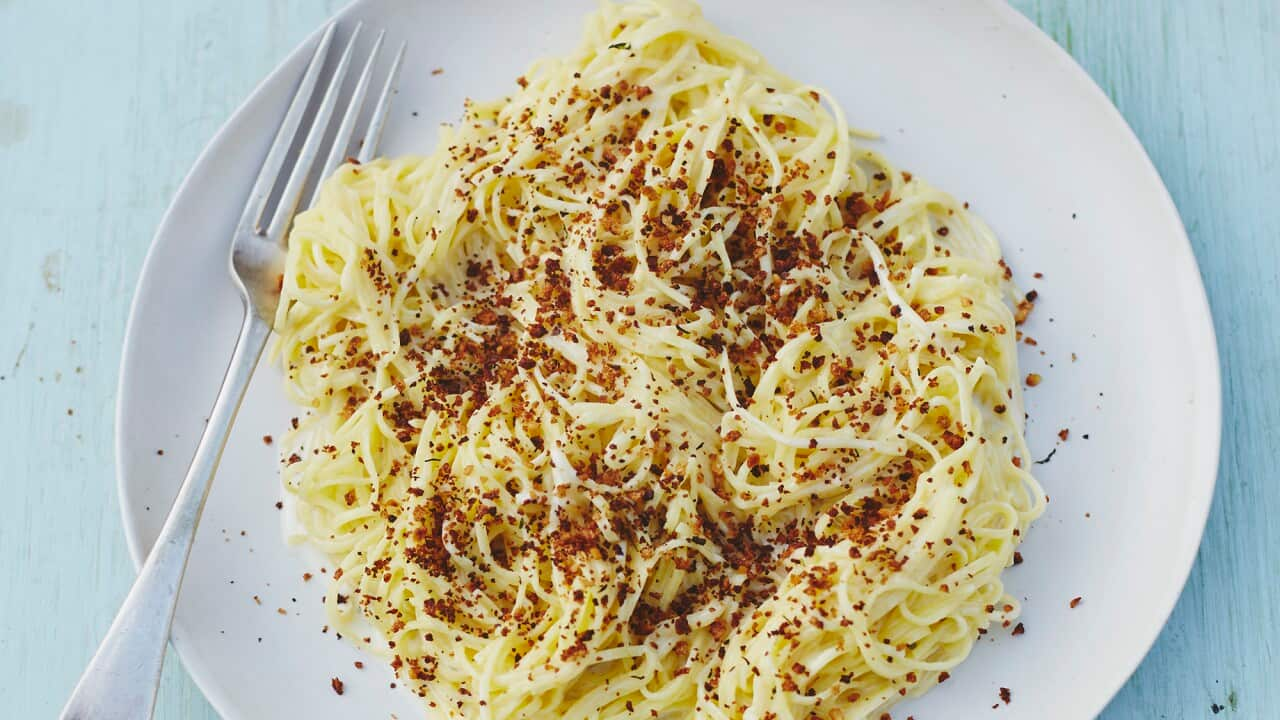serves
10-12
prep
40 minutes
cook
1:05 hour
difficulty
Mid
serves
10-12
people
preparation
40
minutes
cooking
1:05
hour
difficulty
Mid
level
Ingredients
- 1 small egg yolk
- splash of milk
- caster (superfine) sugar, for sprinkling (optional)
Pastry
- 2 tsp caster (superfine) sugar
- 220 g (7¾ oz) plain (all-purpose) flour
- 2½ tbsp mild-tasting olive oil
Filling
- 7 large tart apples (such as granny smith)
- 50 g (1¾ oz) unsalted butter
- 3 tbsp (heaped) dried breadcrumbs
- 2–3 tbsp granulated sugar (depending on how tart your apples are)
- 1 tbsp (scant) pine nuts
- 1 tbsp (scant) unsweetened dark cocoa powder
- finely grated zest of 1 lemon
- 3 tbsp sultanas (golden raisins), soaked in grappa or brandy for at least an hour
Soaking time: 1 hour
Instructions
- To make the pastry, place the sugar and 180 g (6½ oz) of the flour in a bowl and make a well in the centre. Pour the olive oil and 125 ml (4 fl oz/½ cup) of water into the well and stir with a wooden spoon until well combined. Place half the remaining flour on your work surface and tip the pastry onto the flour. Knead for about 10 minutes or the dough is smooth but has a stretch to it (like a loose pasta dough), adding more flour if it gets too sticky. It’s fine if you have some flour left over (you will need it later). Wrap the dough in plastic film and let it rest at room temperature for 30 minutes.
- Preheat the oven to 180°C (350°F). Line a large baking tray with baking paper.
- To make the filling, peel, core and coarsely grate the apples into a large bowl. Melt the butter in a small saucepan over low heat, add the breadcrumbs and mix well, then remove from the heat and set aside. You will finish the filling after you’ve rolled out the dough.
- Dust your work surface with the remaining flour. Remove the pastry from the plastic film and knead for a few minutes, incorporating a bit of the flour from your work surface as you go. Start rolling out the pastry with a rolling pin, flipping it over every minute or so as you stretch it out. It should be around 50 cm x 40 cm (20 in x 16 in) by now, or thereabouts. Carefully lift the sheet of dough onto a large clean tea towel. Now do the final stretching by hand, by carefully placing your hands under the pastry sheet and gently stretching any sections that are thicker. It should now be about 55 cm x 45 cm (22 in x 18 in). If it is smaller than this, you have not stretched it thinly enough (as I mentioned earlier, it should be thin enough for you to read through). When you are ready to assemble the strudel, turn the pastry so the longer edge is closest to you.
- Lightly squeeze and drain the grated apples (drink the lovely apple juice that is left behind). Scatter the apple over the pastry, leaving a 4 cm (1½ in) gap on the two shorter sides, and a 12 cm (4¾ in) gap on the edge of pastry closest to you. The apple filling should go quite close to the pastry edge furthest from you. Scatter the buttery breadcrumbs, sugar, pine nuts, cocoa, lemon zest and drained sultanas evenly over the apple.
- Starting from the long edge furthest from you, use the tea towel to help you roll the strudel towards you into a long sausage enclosing the filling – don’t roll it too tightly. It will finish up on the strip of pastry without any filling on it. Fold down the two ends of the sausage and carefully lift it onto the prepared tray, curving it into a horse-shoe shape. Whisk together the egg yolk and milk, and brush over the top of the strudel. Scatter on a bit of sugar if you like.
- Bake for 15 minutes, then reduce the temperature to 170°C (340°F) and cook for a further 50–55 minutes. About 15 minutes before it’s ready, check that the strudel is not browning too much and lower the temperature to 160°C (315°F) if necessary. It should be a deep golden colour.
- Let it cool to room temperature before serving; in fact, it’s actually better the next day. The strudel will keep in an airtight container in the fridge for 5 days or so.
Cook's Notes
Oven temperatures are for conventional; if using fan-forced (convection), reduce the temperature by 20˚C. | We use Australian tablespoons and cups: 1 teaspoon equals 5 ml; 1 tablespoon equals 20 ml; 1 cup equals 250 ml. | All herbs are fresh (unless specified) and cups are lightly packed. | All vegetables are medium size and peeled, unless specified. | All eggs are 55-60 g, unless specified.









